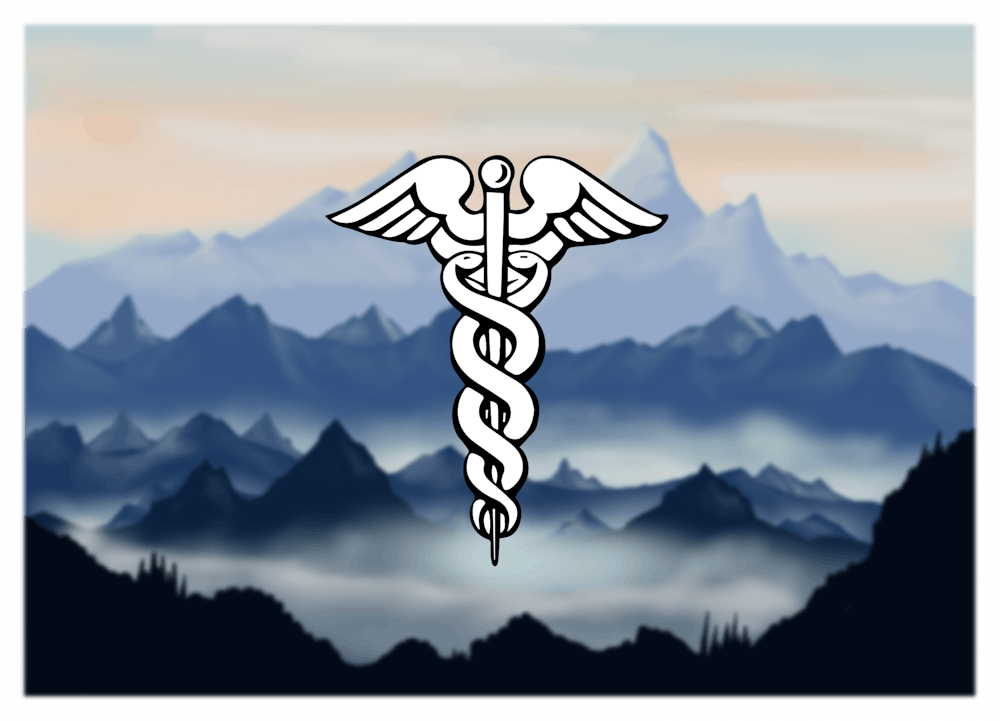Melissa Walls is an associate professor of American Health at the School of Public Health and director of the Great Lakes Hub for the Center for American Indian Health. Being a direct descendant of Bois Forte and Couchiching First Nation Anishinaabe fueled Walls’ interest in bettering the health of Indigenous communities across North America. She has conducted health partnerships research with Indigenous communities for over 17 years. One of the focuses of this research is mental health and its impacts on health outcomes.
On Oct. 25, Walls led a conversation on the health impacts of intergenerational trauma as a part of the Spotlight Series hosted by the School of Public Health. Indigenous groups face some of the most extreme health inequities and outcomes of any racial or ethnic group in the United States.
Walls explained that they are the only group besides white women who are predicted over the next 10 years to experience an increase in premature mortality.
“[Historical traumas] are the fundamental determinants of the Indigenous health inequities that we see today,” she said.
Examples of historical trauma include the first contact of Native communities with European colonizers, the forced removal of Indigenous communities under the Indian Removal Act of 1830 and the establishment of residential schools for Native children across the U.S. and Canada.
Walls described how these schools forcibly removed hundreds of Indigenous children from their families and put them into environments where they were physically, sexually and emotionally abused and faced high rates of corporal punishment and even death.
“We are only now starting to discover all of the unmarked and hidden graves of children that never made it through these [boarding schools],” she said. “These kinds of experiences can have ripple effects within families.”
These traumatic experiences can cause a historical trauma response, the effects of which are felt across multiple generations. Walls explained that survivors of these boarding schools reported feeling like they didn’t know how to be good parents, which resulted in their children reporting higher rates of neglect and abuse. These children also shared the sentiment of not knowing how to raise their own children in a healthy way, extending the effects of these schools to another generation.
These generational effects are also demonstrated in other historical experiences like the relocation programs created by the U.S. government in the 1950s and 1960s to incentivize Indigenous peoples to leave their reservations and move to urban centers. These programs promised professional training and jobs to people willing to move, but once they left their families behind, they were often left without adequate training or any career prospects.
Walls’ research found this relocation increased unhealthy alcohol use as a coping mechanism in parents, which in turn increased their children’s risk of depression and substance abuse problems. This then increased rates of depression and delinquency in their grandchildren.
“Anchoring in that one program, we can see ripple effects that hold up statistically over three generations,” she said. “It’s easy to see how history can ripple forward to affect future generations. What’s harder I think for people to understand is that this is rooted for Native peoples in injustice.”
Senior Savannah Ireland, a direct descendant of Blackfeet Nation, shared a similar sentiment in an email to The News-Letter.
“[Indigenous communities] have much higher rates of chronic illnesses,” she wrote. “This is largely due to inequitable treatment and inherent bias in the medical system, as well as from indigenous people being displaced from their homelands. Addressing how government and medical systems have historically contributed to the discrimination and trauma of indigenous peoples is crucial to improving US public health.”
Walls emphasized the importance of understanding how policies impact Indigenous populations today. For example, health-care systems in Native communities are the most underfunded in the nation.
Ireland saw the direct impacts of this underfunding in her own research.
“While conducting maternal and fetal research here at Hopkins, I learned that maternal and infant mortality rates are significantly higher for indigenous patients in comparison to their white counterparts,” she wrote. “I think it’s important for us, and especially Hopkins students, to understand the traumas that indigenous people have faced because they make up such a large group of Americans (about 9.7 million), and the health inequities they face are a public health problem.”
Walls similarly stressed the need for people to understand the history of Indigenous communities.
“It’s really important for us to [acknowledge] that we are on Indigenous lands no matter where we are and [encourage] one another to think through the privileges that come to some of us for the dispossession of these lands and the enduring impacts of that for Indigenous communities,” she said.
Walls also emphasized the importance of culture to Indigenous communities and in creating a change in the social injustices they face today.
“We work to promote the idea that is supported by traditional wisdom and now supported by Western science, which is that culture is our pathway for well-being and that reclaiming our culture is the way forward,” Walls said.
Illuminative and NDN Collective are two organizations with resources for people interested in more information or resources to become an ally for Indigenous peoples.





